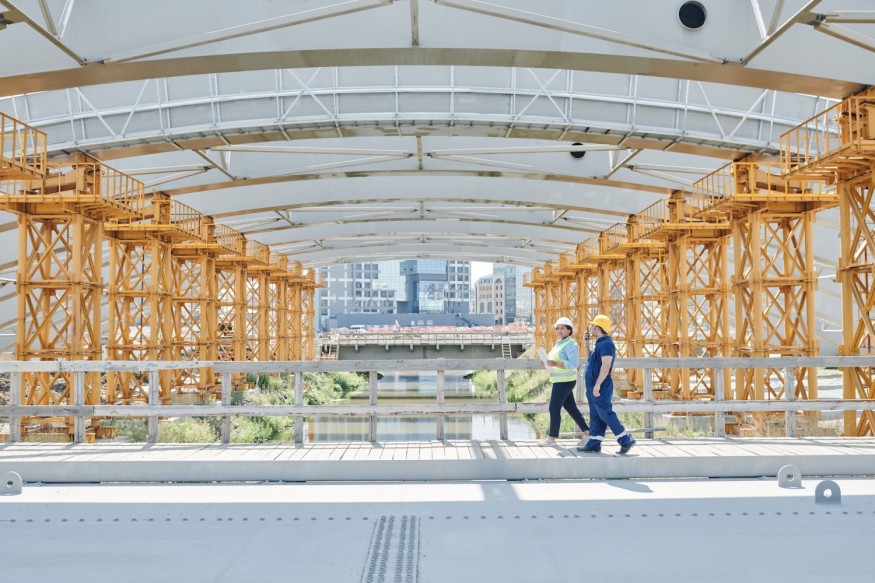
Construction project management has grown more complex with rising urbanization. But advancement in technology across project management, augmented or virtual reality, Internet of Things (IoT), etc is helping the construction industry adapt to growing demand.
The primary use case of using technology for construction management is to gain execution visibility and make processes more efficient - Read more to learn how it can do so.
Challenges in today's construction project management workflows
Here are 5 key challenges faced by construction project managers to plan and execute construction projects;
Increasing stakeholder complexity: as construction projects get bigger with rising demand, the management and stakeholder structure gets more complex with subcontractors, workers, customers, engineers, regulators, etc. Keeping everyone in the loop becomes a dedicated task.
Controlling project costs: managing unforeseen expenses defines the skill set of project managers - which gets tougher with larger or high-profile construction projects.
Increasing regulatory hurdles: managing and tracking local laws becomes difficult for global general or residential services contractors. These regulations are tighter for developed nations and incur heavy penalties for non-adherence.
Implementing sustainable practices: the construction industry is often associated with pollution and deforestation. Knowledge of sustainability and hiring such architects becomes critical to favor local laws and new generations of customers.
Managing data: collecting, tracking, and analyzing data is difficult for construction projects as many job sites are remotely located. Manual assessment is error-prone and can lead to bad decision-making.
7 key technologies that are leading modern construction project management best practices
Here are 7 key technologies to check out that are making construction project management more efficient:
Construction project management software
Construction project management software is a specialized tool designed to streamline various workflows involved in planning and executing construction projects. It digitizes your operations with document and drawings management, real-time communication, automated scheduling and dispatching of jobs, and much more.
Advanced GPS technology
A general or residential services contractor can perform remote monitoring of their workers and inventory by using the latest GPS technology use cases. For example, Zuper is a field service management software that provides Geo-Fencing features. It helps you track field service technician movements within the job sites and alerts supervisors if they leave the premises. GPS also helps in the efficient routing of workers to save time and fuel costs.
Aerial imaging via drones
Today's drones are enabled by artificial intelligence and advanced imaging technology. This helps construction project managers survey and analyze the job site. It also helps track progress and make sure the work aligns with construction drawings. Project managers can make quick decisions about project execution and troubleshoot any discrepancies depicted in aerial images.
Internet of Things (IoT) sensors
Placing IoT sensors helps manage equipment and materials in the inventory. With this, it is possible to track theft and add additional security layers to expensive inventory materials.
It also helps track equipment performance and helps the field service technician utilize it for maximum life span. It will suggest maintenance schedules to reduce equipment downtime and thus potential project delays.
Mobile applications
Enabling your field service technicians and supervisors with mobile apps helps improve remote monitoring and response time to any project crisis. Workers can quickly access drawings, tutorials, checklists, update timesheets or request time off. It helps remove manual administration tasks involved in construction project execution.
Building Information Modeling (BIM)
BIM helps visualize construction drawings that engineers and workers can refer to during their work on a job site. This digital representation of a construction site makes it easy to spot faults in planned jobs versus actual execution. Today's BIM software has become robust with better animation, collaborative features, and analysis.
Automation using robotics
Robots are getting more intelligent with advancements in artificial intelligence. Today, you can deploy specific robots to complete certain tasks like reaching places where it is difficult for humans to work, repetitive jobs, high-temperature or radiation areas, automating digging of land, and much more. Robots also help in the surveillance and security of the job site.
Experience improved efficiency in construction project management with technology
At Zuper, we are committed to incorporating the latest technological advancement in field service management. With multiple integrations, generative AI features, data analysis, and GPS technology - Zuper removes multiple manual operational touchpoints. Book a demo to know more about how we can improve your construction project management and operations.












